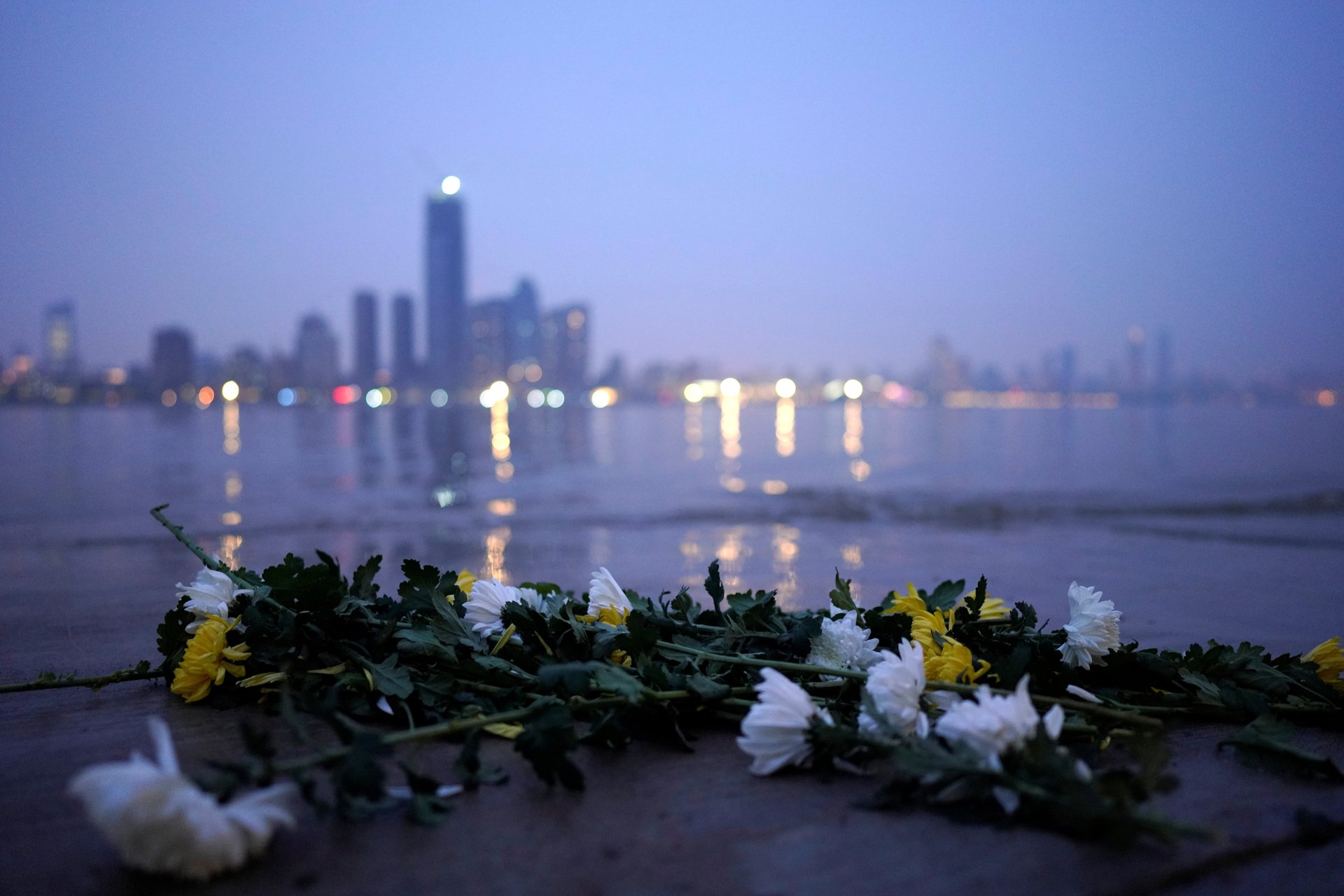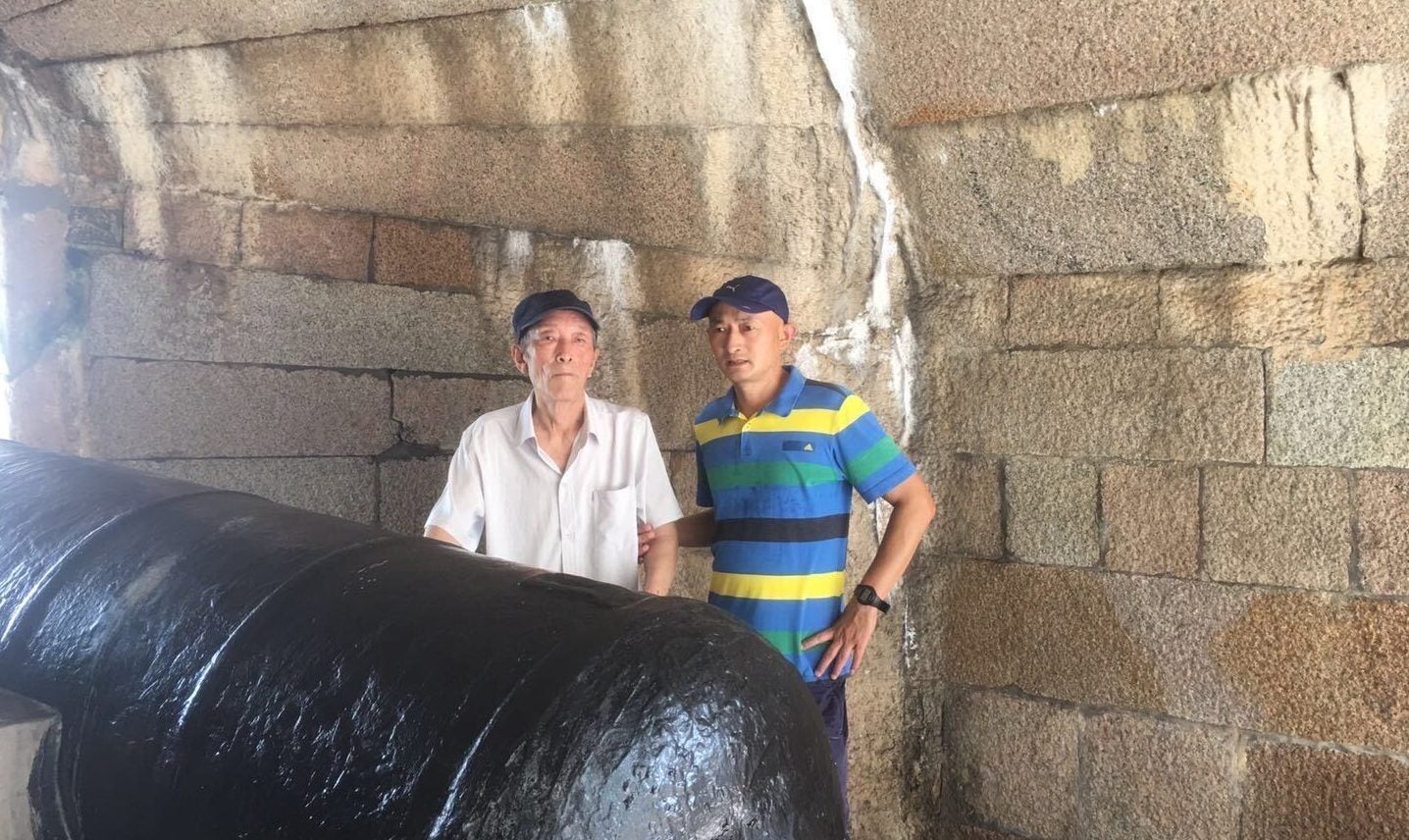A son’s plan to build a memorial to his father and Wuhan’s coronavirus victims has come to an abrupt end
Zhang Hai, a 50-year-old man from Wuhan, lost his father to the novel coronavirus in February as the pandemic ravaged the central Chinese city. Two months later, Zhang, who is still unable to collect and bury his dad’s ashes, started a crowdfunding campaign to erect a memorial to his father and the 4,000 or so other Wuhan citizens who died from Covid-19—which lasted all of three days.


Zhang Hai, a 50-year-old man from Wuhan, lost his father to the novel coronavirus in February as the pandemic ravaged the central Chinese city. Two months later, Zhang, who is still unable to collect and bury his dad’s ashes, started a crowdfunding campaign to erect a memorial to his father and the 4,000 or so other Wuhan citizens who died from Covid-19—which lasted all of three days.
“Because of the initial cover-up of the virus by the Wuhan government, this man-made disaster took place and led to devastating experiences for many, including myself. I was hoping the memorial could remind the whole world of this tragedy and also pay tribute to the innocent people who died because they had not been warned about the disease early enough,” Zhang, who moved from Wuhan to Shenzhen more than 10 years ago, told Quartz. He envisaged a monument in Wuhan that would be painted in black, displaying the names and pictures of the deceased.

Zhang decided to launch a crowdfunding campaign (link in Chinese) on social network Weibo on May 4 to realize his dream of building a monument. Over 100 people, some of whom are also grieving relatives, donated around 800 yuan ($113) in total, with many leaving messages of support alongside their pledges. He posted late yesterday (link in Chinese) on Weibo, however, that he had to give up on the plan because it was “too difficult” to achieve and that he would refund those who donated, without elaborating.
As life in China gradually goes back to normal, with the number of newly reported coronavirus cases slowing to a trickle, authorities are ramping up efforts at home and abroad to snuff out criticisms of the government’s handling of the pandemic, and celebrate itself as a responsible regime that is successful in containing the virus. Last month, Chinese internet users who had uploaded coronavirus-linked content to a GitHub page in order to prevent sensitive material from being scrubbed by censors were arrested. Nevertheless, some Chinese coronavirus victims and their families continue to find ways to air their grievances in the hope that they can have their demands fulfilled—an official explanation, apology, or compensation for their trauma.
Zhang’s 76-year old father, who suffered from Alzheimer’s, had moved with him to Shenzhen, but Zhang drove him back to Wuhan on Jan. 17 to receive treatment for some broken bones, oblivious to the novel coronavirus’s spread in the city. (Zhang’s father, a veteran who worked on nuclear weapons in the Chinese military, was entitled to free medical care, but only in Wuhan, the city in which he is registered.) However, his father was soon diagnosed with coronavirus during his stay at a hospital, and died of respiratory failure on Feb. 1.
Zhang said he still hasn’t collected his father’s ashes because he didn’t want to be accompanied by minders from his dad’s previous workplace—a condition (link in Chinese) for most Wuhan citizens who want to retrieve their loved ones’ remains —because he hates the idea of being monitored during such an occasion. As a result, he hasn’t been able to hold a funeral for his father.
Still, it’s clear that authorities are closely watching his actions. Zhang said he has been summoned twice by Shenzhen police after he posted his demands of holding Wuhan officials accountable for the disaster online, with some of the posts also quickly censored. Zhang also said that a cemetery worker in Wuhan told him that he wasn’t unable to sell space to him to build the memorial, without giving a reason. And as Zhang spoke to Quartz, he observed some “strangers” standing outside his flat asking for him. He later posted on Weibo that the people were Shenzhen police officers.
The Shenzhen police did not reply to a request for comment.
According to a screenshot of an exchange from WeChat shared by Zhang, one donor initially pledged 100 yuan to his campaign, and said: “All of my grievances and discontent can only be diluted with time… I hope you can live in the way as your father wanted you to.” Zhang replied and asked for permission to use the money on the families of coronavirus victims if the monument could not go ahead, which the donor agreed to. Later, the donor deleted Zhang as a WeChat contact.
Yang Zhanqing, a Chinese activist who now lives in New York, has been helping coronavirus victims and families in China with requests such as suing the governments of Wuhan and Hubei (of which Wuhan is the capital) for their mishandling of the pandemic. Zhang had also asked Yang to supervise the usage of money donated to the crowdfunding campaign. According to Yang, many relatives immediately give up their pursuit of justice after being threatened by police, with some eventually admitting that their efforts to defend their rights are causing disruption to social order. “It is very unlikely for the government to apologize to ordinary citizens publicly. The government will use every means it can to thwart attempts by citizens to erect a memorial for coronavirus victims,” he said.
Zhang’s grievances, however, steer clear of implicating the highest levels of China’s government, and are directed specifically instead at city and provincial officials, whose early missteps in managing the pandemic include reportedly keeping mum on the existence of the virus for at least six days in mid-January, and holding a potluck banquet attended by tens of thousands of people Wuhan on Jan. 18, four days before the city was put on lockdown. Zhang said he believed that once his and other families’ grievances could be conveyed to president Xi Jinping and other central leaders, the issues could be resolved.
Zhang has accepted that the memorial plan is now impossible, but he still imagines what he might tell his dad if it could exist one day. “I’d like to say to my father in front of it: ‘Dad, I am really, really sorry for bringing you back to Wuhan and sending you into the arms of the Grim Reaper. Every time I think of you, my heart still aches.'”